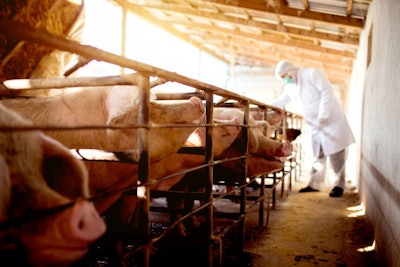
Groups say state has not issued final regulations for the law
A judge in the Sacramento County Superior Court in California has ruled that enforcement of the state’s Proposition 12 enforcement will be delayed 180 days, a move that the American Farm Bureau Federation (AFBF) says underscores the need for a U.S. Supreme Court ruling on the matter.
In September, the AFBF and the National Pork Producers Council (NPPC) asked the Supreme Court to take their case against Proposition 12, which would ban the sale of pork from hogs that don’t meet the state’s arbitrary production standards. The Supreme Court is set to issue an opinion on Proposition 12 any day.
In its ruling on January 21, the Superior Court for Sacramento County granted the petitioners’ writ of mandate to delay the enforcement of Proposition 12 on sales of whole pork meat.
“AFBF is pleased the Sacramento County Superior Court recognized that the state of California has rushed implementation of Proposition 12 without clear rules on how it will be enforced. California voters were told the law would improve animal welfare and food safety, but it fails to accomplish either of those goals,” AFBF said in a statement. “Today’s ruling is another example of inherent flaws in Proposition 12. Besides putting unfair pressure on retailers, it takes away farmers’ flexibility to ensure hogs are raised in a safe environment. Small farms across the country will be forced to make expensive and unnecessary changes to their operations, which will lead to more consolidation and higher food prices for all of America’s families. It’s imperative that the Supreme Court address the constitutionality of Proposition 12. The laws of one state should not set the rules for an entire nation.”
Proposition 12 was voted into law in November 2018, but groups such as the North American Meat Institute (NAMI) say the state is two years delayed in finalizing the regulations for the law.
This week’s court decision “recognizes the complexity of the pork supply chain and the burdensome and costly provisions of Prop 12,” said President and CEO of NAMI, Julie Anna Potts, in a statement. “To enforce the law without final regulations leaves the industry unsure of how to comply or what significant changes must be made to provide pork to this critical market.”












